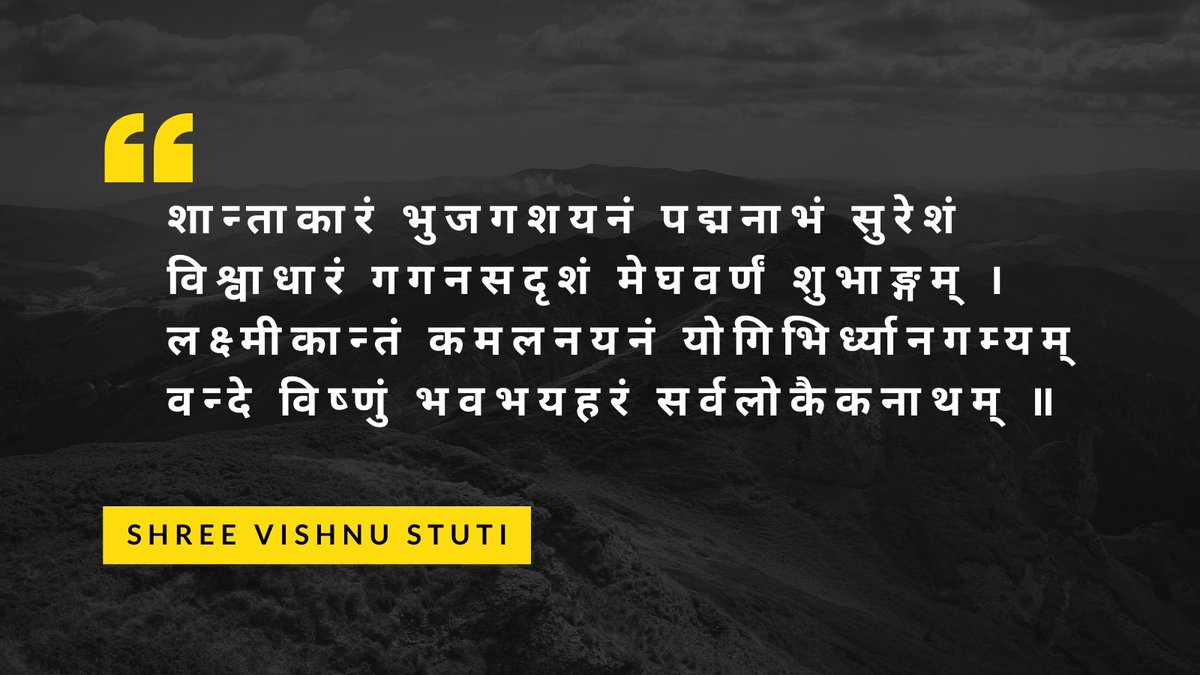
Existence of Generational curse in #Hinduism
Generational curse do exists and mentioned in our scripture at multiple places.
They are of 2 types of Generational curse: #thread 1/11
Generational curse do exists and mentioned in our scripture at multiple places.
They are of 2 types of Generational curse: #thread 1/11

1. External
Such kind of curse may come from a strong and austere personality like a Brahman or a saintly person.
There are couple of references in AnushAsanika Parva, Mahabharat as footnotes...
Such kind of curse may come from a strong and austere personality like a Brahman or a saintly person.
There are couple of references in AnushAsanika Parva, Mahabharat as footnotes...

Once Brahma asked Surabhi to bear evidence before Vishnu to the statement that Brahma has seen the foremost part of Siva. Surabhi having given false evidence out of fear for Brahma was cursed by Siva that her offspring will eat unholy substances.
- Anushashan parva footnot
- Anushashan parva footnot
Most [in]famous curse was given by GAndhAri to bhagvaan Krishna, which was so sharp that, the whole Yadu race met with rather a too quick annihilation to be able to witness further generational curse.
This video explains that series of events in details.
This video explains that series of events in details.
Now let's look at the second the type of Generational curse!
2. Ancestral
That comes from the ancestors of the same family itself, also known as Pitru runa or Pitru dosha. Usually, our ancestors live in subtle forms with their mental desires still unfulfilled.
2. Ancestral
That comes from the ancestors of the same family itself, also known as Pitru runa or Pitru dosha. Usually, our ancestors live in subtle forms with their mental desires still unfulfilled.
If such desires are not fulfilled by subsequent generations, then these desires are gradually transformed into curse and create various obstacles for ongoing generations.
One reason for such Pitru dosha is shortly discussed in Gita:
One reason for such Pitru dosha is shortly discussed in Gita:
"And the hybridisation (Varnsa-shankara, intermix of the Varna) in the family leads the ruiners of the family into hell only. The forefathers of these fall down (into hell) because of being deprived of the offerings of food and water. " - Shree Gita 1.42
We may wonder, why some misdeed of our forefathers have to be paid by us? That's because, a major [material] part of our father gets born as our own self.
There are numerous references in ancient scriptures, which suggest that the father is born as a son/daughter.
There are numerous references in ancient scriptures, which suggest that the father is born as a son/daughter.
Hence, in a way we can assume that our great-great forefather's [material] part has born our own selves.
Here is one such reference by Bhishma while discussing fair property distribution among son & daughter:
Here is one such reference by Bhishma while discussing fair property distribution among son & daughter:
"Bhishma said, 'The son is even as one's own self, and the daughter is like unto the son. How, therefore, can another take the wealth when one lives in one's own self in the form of one's daughter?" - Mahabharat Anusasana Parva (13)
Notice : "The son is even as one's own self"
Notice : "The son is even as one's own self"
Common people giving curse should be ignored & the receiver of the curse should grant them a pardon.
and one should not use the abusive words , even curse words are abusive words. The reason is explained in this quoted thread.
Thank you 🙏
and one should not use the abusive words , even curse words are abusive words. The reason is explained in this quoted thread.
Thank you 🙏
https://twitter.com/HinduMediaWiki/status/1292582371506573312
• • •
Missing some Tweet in this thread? You can try to
force a refresh










